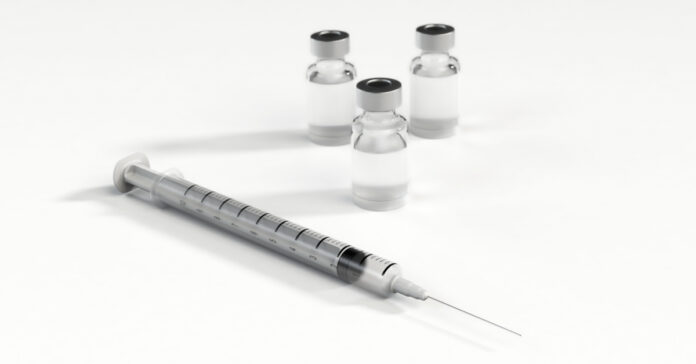People seem to think things are pretty bad now, with the coronavirus spreading across the U.S., South America, and India at unprecedented rates, but the Director of the U.S. Centers for Diseases Control warns that things could get worse. He thinks “the fall and winter of 2020 and 2021 are probably going to be one of the most difficult times we’ve experienced in American Public Health.”
The problem, it seems, is the co-occurrence of COVID-19 and the flu hitting at the same time, difficulty identifying who has what, and the impact of COVID-19 on hospitals that traditionally fill up with flu patients. The CDC recommends everyone get the flu vaccine. We suggest the height of flu season might be a good time to practice self-imposed quarantine.
Of course, if we continue to wear masks, wash our hands, and practice social distancing, we might see far fewer cases of the flu than we do today. That could also be impacted by the schools staying closed as influenza can be spread by school children. Much about COVID-19 remains unknown and, despite the best efforts of experts, unpredictable. Take what actions you feel are necessary to protect yourself and others and proceed at your own risk.
Promising Vaccine Candidates
At the same time we get prediction of possible future doom and gloom prediction from the CDC, Bloomberg is reporting on a promising vaccine developed by a team from Oxford University. This vaccine candidate is in Phase III trials in the UK and AstraZeneca is ready to produce 2 billion doses, with 300 million being made for the U.S., if the trial results are positive. Development of this vaccine candidate is ahead of the Moderna vaccine candidate that has been garnering so much media attention and stock market impact.
I am no expert on vaccines, but I worked in the pharmaceutical industry long enough to know that AstraZeneca is a highly respected company that is unlikely to have put its manufacturing and distribution muscle behind a vaccine candidate unless they thought it had high potential. I find this promising news.
Separately, the aforementioned vaccine candidate from Moderna reported positive results in an early state human trial, eliciting a “robust immune response.”
What does this means for preppers? Business as usual: Prepare for the worst (the CDC warnings comes true and we have a deadly mix of flu and COVID-19 cases) while hoping for the best (a vaccine candidate provides protection from infection, minimizes symptoms, and slows the spread of COVID-19).
Vaccine Warning
Before we get too enthused about any vaccine, let me give you the bad news. Testing a drug on thousands of people does not always accurately predict how it will behave when used in millions or hundreds of millions of people. I have personally worked at a company that had to withdraw a major drug due to unforeseen side effects after it entered the market despite positive results in well-run clinical trials and FDA approval.
Why? Because the population at large is not homogenous. A drug may perform differently in the elderly or the young, but these age groups are usually not included in clinical trials or are under-represented. For example, a separate pediatric trial may be required to test efficacy and safety in children. Hopefully, any drug developed for COVID-19 will be tested on the elderly who are most vulnerable to the disease.
Clinical trials don’t test for side effects in people with liver disease, kidney problems, or others underlying health issues; in fact, these folks are usually left out of trial populations. There may be small population segments that cannot or should not take a drug or vaccine. For example, the traditional flu vaccine is not to be given to people who are allergic to eggs.
It’s also quite possible that people with suppressed immune systems may not respond to the vaccine in the same way healthy humans do. This will likely require further study.
Finally, there may be genetic differences from person to person that cause a drug to be more or less effective in certain populations. A study designed to determine whether or not a vaccine produces an immune response is unlikely to provide statistically significant data on variations across different ethnic or genetic populations, nor is it designed to do so. Some of these differences will be noted only after further study after a drug is introduced in the population at large.
We’re not taking a stance on whether vaccines are good or bad and whether or not you should get one. Your health, your age, and your level of potential exposure should be weighed when making the decision. Again, educate yourself, make up your own mind and take responsibility for your actions and your personal health.
By the Numbers
COVID-19 cases in the U.S. increased by 65,600 in the past 24 hours, climbing to 3,445,500, according to the New York Times. Reported deaths jumped by 953, about double the prior day’s number, reaching 136,356.
Globally, reported cases of COVID-19 increased by 222,000 to 13.357 million, according to Johns Hopkins. Deaths ticked up about 4,000 to 579,509. By the end of the week, we anticipate Brazil will reach 2 million coronavirus cases while India tops 1 million.








